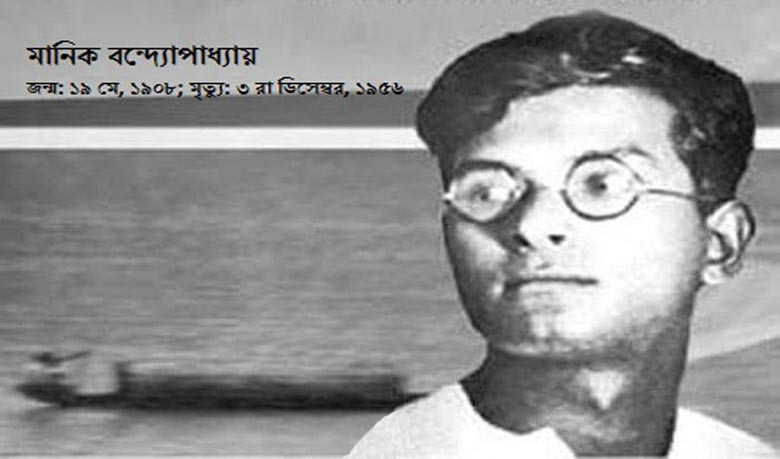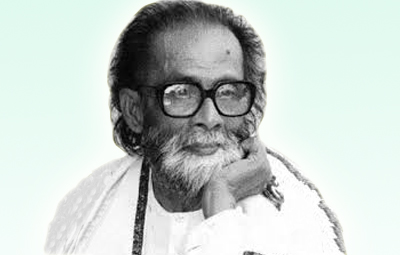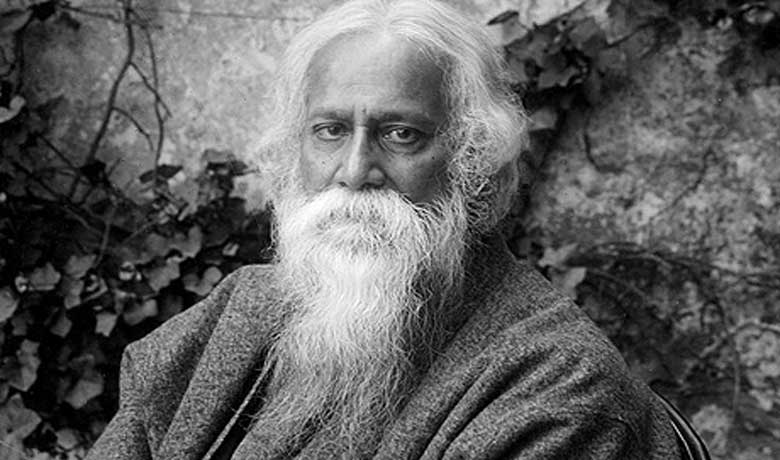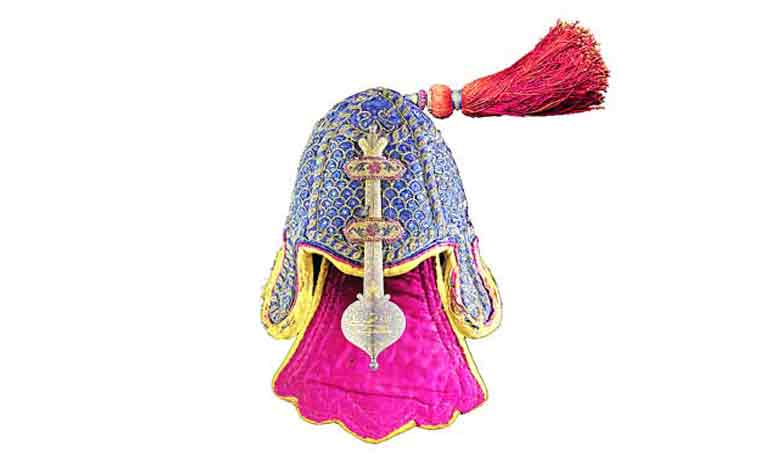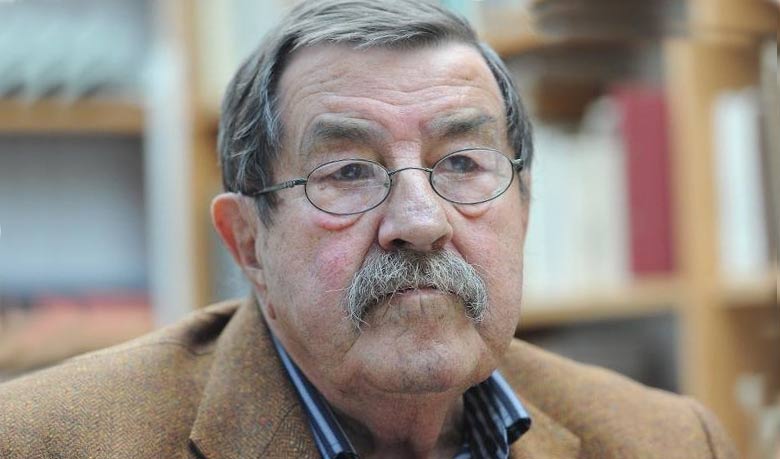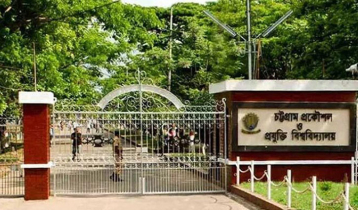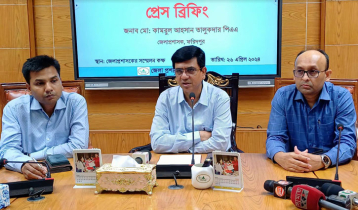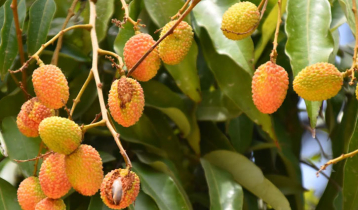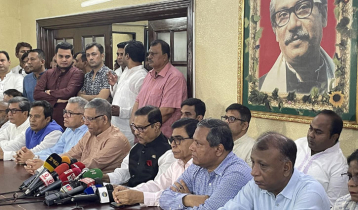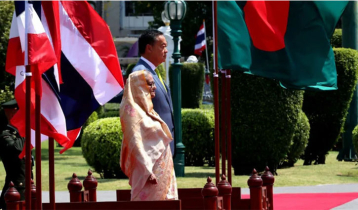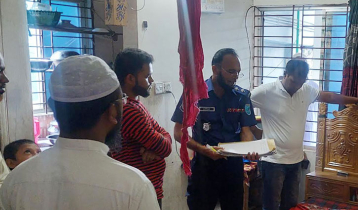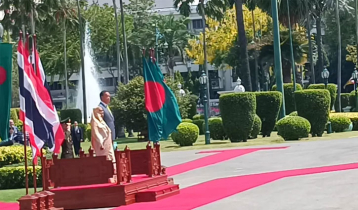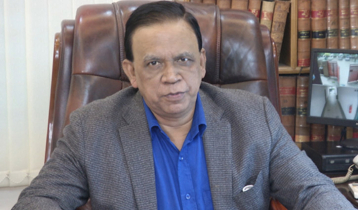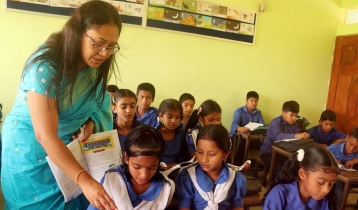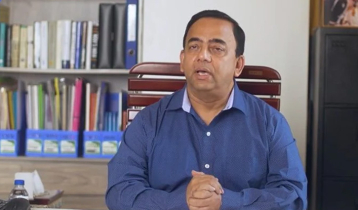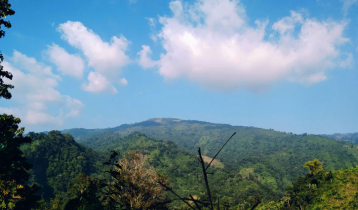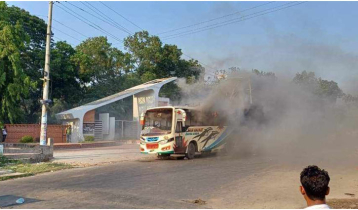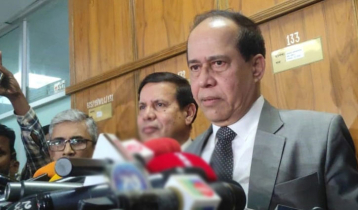Jibanananda Das, the metaphor wizard poet
Aminul || risingbd.com
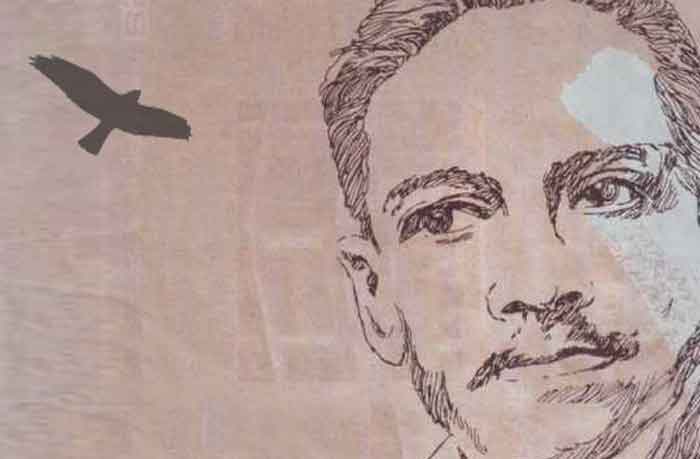
Photo illustration: Apurbo Khandaker
Aminul Islam: Today is 22 October, is the 61st death anniversary of the metaphor wizard poet Jibanananda Das, acknowledged to be the pioneer of modernism in Bengali poetry.
The poet died on 22 October 1954, eight days after he was hit by a tramcar. The witnesses said that though the tramcar whistled, he did not stop and got struck. Some deem the accident as an attempt at suicide.
According to most critics, scholars and lovers of Bengali poetry, he is the greatest Bengali poet after Rabindranath Tagore and by all means, the truest modernist vanguard of Bengali poetry.
The American scholar Clinton Booth Seely has termed this poet as ‘Bengal’s most cherished poet since Rabindranath.’
Listless in his lifestyle, unimpressive in his ways, constantly plagued by the mainstream literary community and further distressed by marital feud, Jibanananda Das lived a life of pessimism, misfortune, neglect and gloom especially after he moved to Calcutta from Barishal where he was born and brought up.
Although influenced by Eliot, Yeats and Pound, Jibanananda Das was free of the Catholic world-view of Eliot, glorification of the Irish lineage of Yeats and the fascist faith of Pound.
Jibanananda Das mostly presents woman’s beauty in a completely different metaphor, unknown so far in our literature before his utterance: Her hair was like an ancient darkling night in Vidisa / Her face the craftsmanship of Sravasti.
Das wrote ceaselessly, but as he was an introvert and the “most alone of Bengali poets”, he felt "compelled to suppress some of his most important writings or to locate them in a secret life".
During his lifetime, only seven volumes of his poems were published. After his death, it was discovered that apart from poems Das wrote several novels and a large number of short stories. His unpublished works are still being published.
Commenting on his own work, Jibanananda once wrote, "My work has been described as difficult, solitary and withdrawn. I have been labeled variously, as a nature poet, a socially and historically conscious one, even as an unconscious artist. I have been called a symbolist, surrealist and what not! These are all partially correct, I suppose, but they do not capture the entire fabric."
Jibanananda Das was born in 1899 in a Vaidya-Brahmin family in the small district town of Barisal, located in the south of Bangladesh. His ancestors came from the Bikrampur region of Dhaka district, from a now-extinct village called Gaupara on the banks of the river Padma. Jibanananda`s grandfather Sarbananda Dasgupta was the first to settle permanently in Barisal.
On October 14 of 1954, Jibanananda was accidentally run over by a tramcar on Rashbehari Avenue, very close to where he lived. He succumbed to his injuries in hospital on 22 October 1954, eight days later, at about midnight. He was then 55 and left behind his wife, Labanyaprabha Das, a son and a daughter, and the ever-growing band of readers.
The Indian Sahitya Academy (Academy of Literature) posthumously presented him with the highest literary honor for his shreshhtha kabitaa (Selected Poems).
‘Banalata Sen’ is the most widely quoted poem by Jibanananda.
For thousands of years I roamed the paths of this earth,
From waters around Ceylon in dead of night to Malayan seas.
Much have I wandered. I was there in the gray world of Asoka
And Bimbisara, pressed on through darkness to the city of Vidarbha.
I am a weary heart surrounded by life`s frothy ocean.
To me she gave a moment`s peace - Banalata Sen from Natore.
Her hair was like an ancient darkling night in Vidisa
Her face, the craftsmanship of Sravasti. As the helmsman,
His rudder broken, far out upon the sea-adrift,
Sees the grass-green land of a cinnamon isle, just so
Through darkness I saw her. Said she, "Where have you been so long?"
And raised her bird`s-nest-like eyes - Banalata Sen from Natore.
At days end, like hush of dew
Comes evening. A hawk wipes the scent of sunlight from its wings,
When earth`s colors fade and some pale design is sketched,
Then glimmering fireflies paint in the story.
All birds come home, all rivers, all of this life`s tasks finished.
Only darkness remains, as I sit there face to face with Banalata Sen.
Banalata Sen was a recurrent theme is Jibanananda`s creation with its rich tapestry of imagery..Was there a Banalata Sen? There is no documentation that there was indeed someone by that name in his real life...Expressions suggesting end of time, and use of words like "darkness remains" suggest end of life themes, that were common in Jibanananda`s works related to Banalata Sen, but nothing beyond is hinted in these works.
risingbd/Oct 22, 2014/Aminul
risingbd.com



